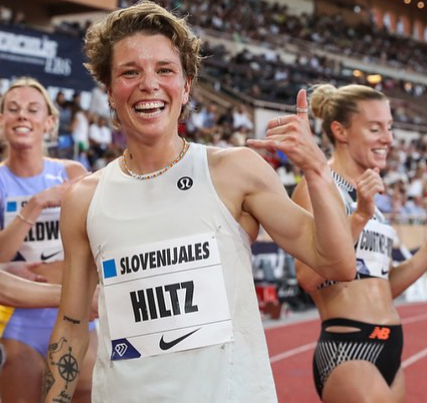On July 25, during the first match of the Olympic women’s soccer tournament in Paris 2024, Canadian player Quinn created history by playing against New Zealand. Quinn’s involvement represented a noteworthy achievement as they became the first transgender nonbinary Olympian to compete in several games.
Quinn has previously created history by being the first openly transgender Olympic athlete when they came out before the Tokyo Olympics in 2021. Their ongoing international prominence draws attention to a pivotal point in sports history and emphasizes how the Olympic movement is becoming more inclusive.
Quinn is not the only nonbinary athlete competing in Paris.
Early in August, American 1,500-metre runner Nikki Hiltz will join the competition. Hiltz made an incredible run to qualify for the Games, overtaking the leaders of the pack in the last lap of the competition.
They stated; “There’s more to this than just me. Today marks the conclusion of Pride Month. This was one I wanted to run for my neighbourhood. You guys, the LGBT community, have made the last hundred [metres] worthwhile for me. I could sense everyone’s support and affection.”
Now that Hiltz is competing in the Olympics on behalf of their community, it goes against the grain given the outdated stance that the transphobic World Athletics, the international organization that oversees track and field, has taken on transgender participation.
Sebastian Coe, the former Olympian and member of the International Olympic Committee who oversees World Athletics, stressed the need to protect “the integrity of the female category in athletics.”
World Athletics said; “We will be guided in this by the science around physical performance and male advantage, which will inevitably develop over the coming years”
It’s impossible not to support Quinn and Hiltz when they compete in Paris. Hiltz said, “I’m just looking forward to keeping up with myself and taking up space,” following his qualification for the 2024 Olympics.

